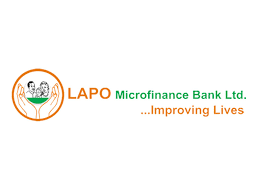A new report by LAPO Microfinance Bank has revealed that more than 70 per cent of Nigerian families do not have access to affordable loans for water, sanitation, and hygiene (WASH) facilities.
The bank made this disclosure during a workshop in Lagos on Tuesday. At the event, LAPO presented its WASH Market Research Survey findings to stakeholders, including development partners, financial experts, and researchers.
Managing Director of LAPO Microfinance Bank, Cynthia Ikponmwosa, said the bank’s research underscores its mission to help close the financing gap in water and sanitation in the country.
Ikponmwosa explained, “Clean water and proper sanitation are not just a necessity for health; they empower education, boost productivity, and transform future generations. Through our WASH loan programme, LAPO is helping families to invest in facilities that will improve their lives.”
The Head of Research and Business Development at LAPO, Evbuomwan Efosa, presented the report. He explained that the survey covered Anambra, Edo, Kano, Lagos, Nasarawa, and Taraba. The study interviewed 1,500 households and 600 small and medium enterprises (SMEs) in the WASH sector.
Efforts to provide microfinance to improve hygiene, especially for women-led businesses and homes, were strongly supported by the data. “Our research underscores that financing water and sanitation is a health intervention and a powerful tool for economic empowerment,” Efosa said.
The report also highlights a huge service gap — 78 per cent of homes need toilet facilities, 65 per cent lack clean water, and 52 per cent do not have proper hygiene infrastructure.
Some states suffer more from poor water and sanitation. In Taraba, Kano, and Nasarawa, for example, clean water access drops to nearly 35-61 per cent of the population, while the rate of open defecation exceeds 43 per cent.
The survey also shows many people prefer small loans below N500,000, with annual interest of 12–15 per cent and repayment periods of 12–24 months. However, 60 per cent of people do not know about WASH-specific loans.
For businesses in the WASH sector — water vendors or sanitary service providers — collateral-free loans above N1 million, alongside technical support, are in high demand.
To help close these gaps, LAPO Microfinance Bank plans to launch a pilot programme to provide small household loans of N100,000 to N200,000 in Taraba and Nasarawa.
The bank also intends to expand financing for small businesses through group borrowing models and collaborate with market associations and religious institutions.
Senior Account Partnership Manager at Water.org, Gilbert Okpono, described the collaboration as a strong example of sustainable financing. “This underscores our shared values — improving lives and protecting the environment by offering financial opportunities to underserved people.”
The workshop ended with a roundtable dialogue featuring stakeholders from government, civil society, and the development finance sector. They discussed scaling up financing, employing digital financial solutions, and improving data collection to aid policy decisions.
LAPO Microfinance Bank reiterated its 30-year mission to empower low-income families and small businesses through financial services that drive development and reduce poverty.
